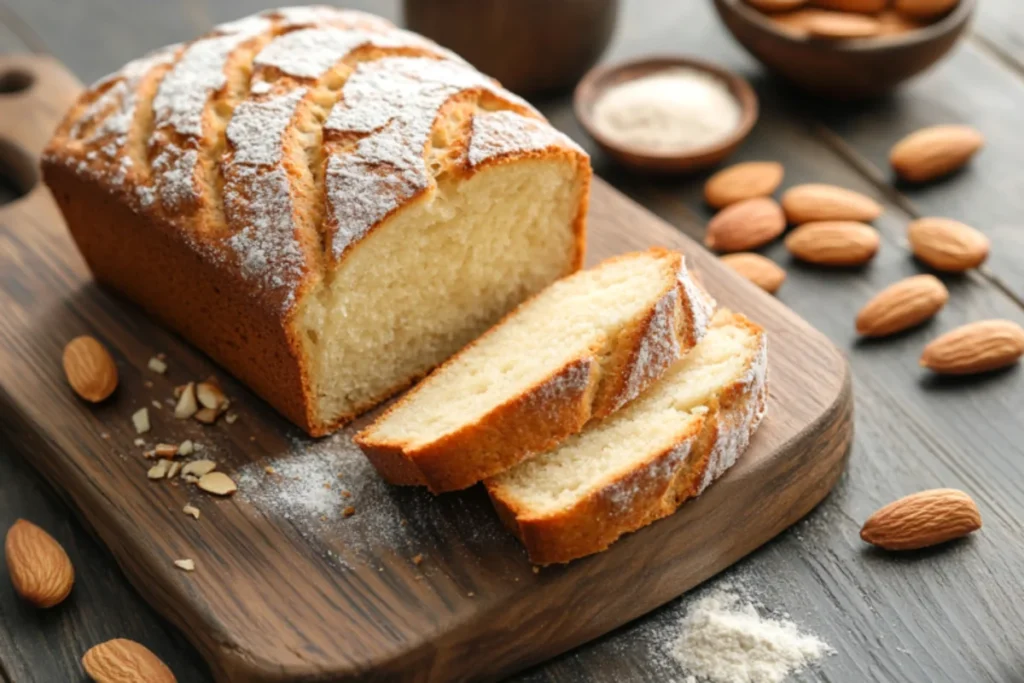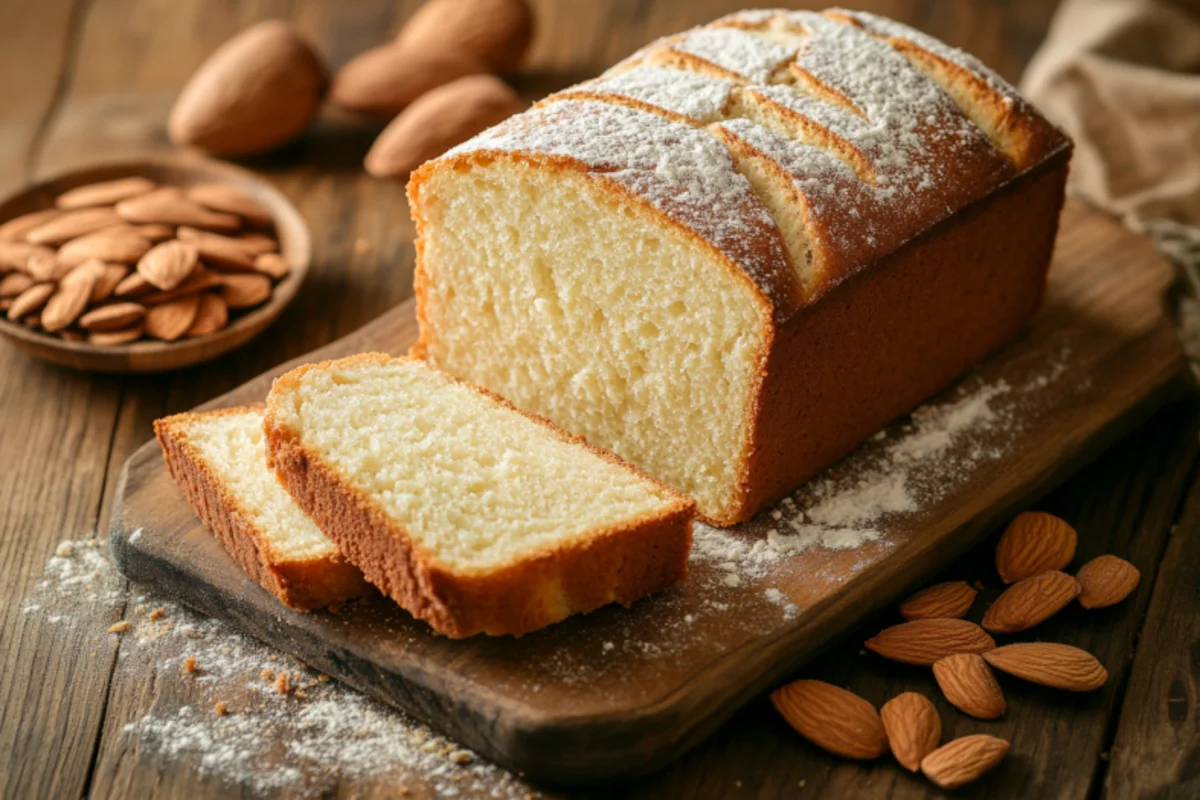This article explores everything you need to know about low carb bread, from types to recipes. Learn how to enjoy bread without high carbohydrates.
The Appeal of Low Carb Bread
Cutting down on carbohydrates has become a popular health goal. Many people are looking for ways to enjoy their favorite foods in lower carb forms. Bread, a staple for many, is often one of the first things people consider. Low carb bread provides a solution, allowing you to savor sandwiches and toast. However, it still fits within your lower carbohydrate dietary goals. This kind of bread offers a satisfying alternative to traditional loaves.
Understanding Low Carb Bread
Low carb bread is made with low carbohydrate ingredients. The main goal is to reduce the number of net carbohydrates. These carbohydrates are the ones that impact blood sugar levels. Low carb breads are often made using flours from nuts or seeds. These flours have fewer carbohydrates than regular wheat flour. Almond flour and coconut flour are common choices. Additionally, psyllium husk and flaxseed meal are sometimes used. These ingredients add fiber and texture.
Low Carb Bread and its Benefits
Choosing low carb can offer some advantages. Firstly, it aids in controlling blood sugar levels. This is particularly beneficial for individuals managing diabetes. Secondly, these breads are often higher in fiber. This can promote better digestion and make you feel fuller longer. Thirdly, low carb can support weight management goals. These breads can be a great option for those following low carb diets. Therefore, it’s an excellent option for a health-conscious lifestyle.
What Makes a Bread Low Carb?
The key characteristic of low carb bread lies in its ingredients. Traditional bread primarily utilizes wheat flour. Wheat flour is high in carbohydrates. Low carb bread, however, uses alternative flours that are lower in carbohydrates. For example, almond flour is much lower in carbs than wheat flour. The fiber content is usually higher in low carb bread, which contributes to feelings of fullness. These ingredients are what make this a lower carbohydrate alternative.
Types of Low Carb Bread
Various varieties of low carb bread are available today. Each has its distinct taste, texture, and ingredient profile. It is good to explore these options to find what fits your needs.

Almond Flour Bread
Almond flour is a common ingredient in low carb . It provides a slightly sweet flavor and a soft texture. This bread is often gluten-free. However, almond flour bread can sometimes be more dense than bread made with wheat. The protein-rich profile is an additional perk. Consequently, this makes it a satisfying and nutritious option.
Coconut Flour Bread
Coconut flour is another popular low carb choice. It creates a bread with a slightly sweet taste and a dense texture. Coconut flour is very absorbent, so recipes using it require precise measurements. This bread is also gluten-free and protein-rich. Therefore, it provides great nutritional benefits.
Flaxseed Bread
Flaxseed bread is known for its high fiber content. It has a slightly nutty flavor and a hearty texture. Flaxseed meal also offers omega-3 fatty acids. These fatty acids contribute to good health. Hence, this type of low carb provides many health benefits.
Psyllium Husk Bread
Psyllium husk is used to give structure and a slightly chewy texture to low carb breads. It’s very high in fiber and absorbs a lot of water. Therefore, using it can create a bread that feels more like traditional bread. This ingredient works well combined with other low carb flours.
Cloud Bread
Cloud bread, also known as oopsie bread, is very low in carbs. It’s mainly made of eggs, cream cheese, and cream of tartar. It has a light and airy texture. This bread is a popular low carb option for those seeking a very low carbohydrate choice. Basically, it is an egg-based bread alternative.
Making Your Own Low Carb Bread
Creating your own low carb bread allows you to customize ingredients. Also, it can be a fun culinary experience. Here’s how you can approach it:
Essential Equipment and Ingredients
You’ll need basic baking equipment, including bowls, a mixing spoon, and a loaf pan. Key ingredients often include almond flour, coconut flour, psyllium husk, and flaxseed meal. Eggs, some kind of oil, and leavening agents are also necessary. Make sure to measure ingredients accurately for the best results.
Basic Recipe for Low Carb Almond Flour
- Mix 3 cups almond flour with 1 teaspoon baking powder and 1/2 teaspoon salt.
- In a separate bowl, beat 4 eggs, 1/4 cup melted coconut oil, and 1 teaspoon apple cider vinegar.
- Combine the wet and dry ingredients and stir until well mixed.
- Pour the mixture into a greased loaf pan.
- Bake at 350°F (175°C) for 30-40 minutes.
Tips for Successful Low Carb Bread Baking
- Measure your ingredients accurately. Additionally, it is essential to follow recipes closely.
- Don’t overmix the batter, as this can lead to dense bread.
- Allow the bread to cool completely before slicing. This prevents it from crumbling.
- Experiment with different ingredients to find your preferred taste and texture. Finally, practice makes perfect.
Using Low Carb Bread in Recipes
Low carb bread is quite versatile. It can be used in many culinary applications. Here are some ideas:
Sandwiches and Wraps
Use low carb to make your favorite sandwiches. It can hold up well to fillings. Accordingly, it can be a good substitute for regular bread in lunches. Additionally, you can use it for wraps. Add proteins like grilled chicken, turkey, or cheese for a satisfying meal.
Toast and Breakfast Options
Toast low carb bread to enjoy with your breakfast. Top it with avocado, eggs, or nut butter. These options provide a protein-rich start to your day. Moreover, it’s a simple and satisfying way to use your bread.
Croutons for Salads
Cut your low carb bread into small cubes, drizzle with olive oil and herbs. Then, bake until they are crispy. These make great low carb croutons for salads. Therefore, you can still enjoy the crunch without the higher carbohydrates.
Low Carb Bread Pudding
Use low bread in a lower carbohydrate version of bread pudding. Combine it with eggs, milk substitutes, and spices. This indulgent dessert can fit your dietary goals. Meanwhile, you can satisfy your sweet cravings.
Comparing Low Carb Bread to Traditional Bread
There are some distinct differences between low carb and traditional bread. Understanding these helps you make informed food choices.
Differences in Carbohydrate Content
The main difference is the number of net carbohydrates. Traditional bread has a much higher carbohydrate content. Low carb significantly reduces this amount. This can be very beneficial for blood sugar control. Therefore, this is a key factor for many people.
Differences in Ingredients
Traditional bread primarily uses wheat flour. Low carb bread uses alternative flours such as almond flour or coconut flour. This difference impacts both the nutritional value and texture. Additionally, these differences also impact the flavor profiles.
Differences in Texture and Flavor
Low carb breads may have a different texture than traditional bread. Some are denser or have a slightly different crumb. Also, the flavor may be slightly different depending on the flours used. However, these differences are something many people find enjoyable.
Nutritional Value Comparison
Low carb breads are often higher in fiber and protein than traditional bread. This higher fiber aids in digestion. Also, it can help you feel fuller for longer. Moreover, they are generally lower in carbohydrates, which can help with blood sugar.
Low Carb Bread for Specific Dietary Needs
Low carb bread can be adapted to suit different dietary needs. Here are a few ways:
Gluten-Free
Many low carb recipes are naturally gluten-free, since they don’t use wheat. Almond flour and coconut flour are gluten-free alternatives. This makes low carb bread a great option for people with gluten intolerance.
Vegan Low Carb Bread
It is possible to make low carb bread that is also vegan. You can achieve this by using a flaxseed “egg” replacement. Furthermore, you will also need to use plant-based oils. Therefore, these options are suitable for vegan lifestyles.
Adapting for Lactose-Free
Many low carb bread recipes can be lactose-free by using dairy alternatives. You can substitute almond milk, coconut milk, or other plant-based milks. Consequently, this makes low carb bread more accessible for those who avoid lactose.
Low Carb Bread: Potential Downsides
While low carb offers several benefits, there are also some potential drawbacks to consider:
Cost of Ingredients
Low carb flours, such as almond flour, are often more costly than wheat flour. This can make low carb bread more expensive to make or purchase. Consequently, consider the cost when making choices.
Texture and Taste Differences
The texture and taste of low carb are different from traditional bread. Some people might not like these differences. This is an important factor to take into consideration. Nevertheless, many people enjoy the distinct profile.
Processing and Additives
Some commercially prepared low carb breads may contain additives. These additives help to improve texture or shelf life. It is important to read the labels carefully. However, many options use natural ingredients.
Possible Digestive Issues
Some ingredients used in low carb bread, like psyllium husk, can cause digestive issues. Especially if you have a sensitive stomach or consume large amounts at once. It is essential to start slowly when eating new bread. Therefore, introduce new foods gradually.
Choosing the Right Low Carb Bread
Selecting the best low carb involves evaluating ingredients, nutrition, and your own preferences. It is good to consider different factors.
Reading Product Labels Carefully
Pay close attention to the nutrition labels. Look for net carbohydrates, fiber, and protein content. Additionally, you must check for any unwanted additives. Be a conscious shopper.
Considering Ingredients and Additives
Choose bread with natural ingredients. Avoid artificial preservatives and additives. Focus on ingredients that you recognize and understand. Accordingly, this approach will be beneficial to your diet.
Trying Different Brands and Types
Experiment with various brands and types of low carb bread. Each one may have a unique flavor and texture. Furthermore, this will help you discover your favorite options.
Matching to Your Individual Dietary Needs
Select low carb that suits your dietary needs. This includes gluten-free, vegan, and other specific requirements. Therefore, it will help you meet your health goals.
Low Carb Bread: A Summary
In conclusion, low carb provides a lower carbohydrate alternative to traditional bread. It allows you to enjoy bread while following your dietary goals. These breads use lower carb flours. Moreover, these flours are from seeds and nuts. They offer several benefits such as controlling blood sugar. Therefore, they are a great option. Consider the various options available. Finally, find the right fit for your health and preferences.
Frequently Asked Questions (FAQs)
What type of bread is lowest in carbs?
Cloud bread, also known as oopsie bread, is generally the lowest in carbohydrates. This type of bread is primarily made with eggs, cream cheese, and a stabilizer like cream of tartar. It contains very little carbohydrate content and therefore, is a good option for people on a lower carbohydrate diet.
Is sourdough bread less carbs?
Sourdough bread is not necessarily lower in carbohydrates than other types of bread. However, the fermentation process in sourdough can reduce the glycemic index of the bread. This means it may have a smaller impact on blood sugar. However, it still contains carbohydrates. So, it is not a low carb alternative.
Can you have low-carb bread on keto?
Yes, low carb bread is typically compatible with the ketogenic diet. Keto diets focus on limiting carbohydrates and increasing fat intake. Low carb is made with alternative flours that are lower in carbohydrates. This makes it a suitable option for people following keto.
What can I replace bread carbs with?
There are several ways to replace the carbohydrates from bread. Lettuce wraps can be used instead of bread for sandwiches or burgers. Additionally, you can use large vegetable leaves like collard or cabbage leaves as wraps. Other alternatives include using low carb crackers or low carb breads.

